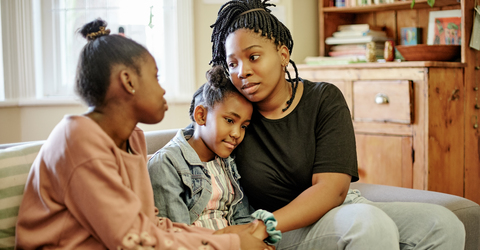
If you and your partner separate, there are implications for your pension.
Your partner's pension is for your ex-partner
Your ex-partner will receive the partner’s pension that you accrued until the time you separated. This means that any potential new partner will receive less pension from us if you die.
If you and your ex-partner don’t want that situation to arise, your ex-partner could renounce his/her right to a partner’s pension. If so, please use this form.
Or you send in a copy of the certified divorce covenant. This must clearly state that your ex-partner renounces the partner's pension. Certified means that there is a stamp from the court or notary on the first page. Or the divorce covenant is on the lawyer's letterhead and co-signed by this lawyer.
You can apportion your retirement pension in four ways
Together with your ex-partner, you agree how your retirement pension is to be apportioned. You can apportion it in four ways:
In this case, half of the retirement pension you accrued during your marriage or registered partnership will go to your ex-partner. That is prescribed by law.
If you retire
Then both you and your ex-partner receive a retirement pension.
If your ex-partner dies before you retire
Then you will get back the retirement pension (and partner’s pension) that was apportioned to your ex-partner.
If your ex-partner dies after your retirement
Then you will only get back the retirement pension from your ex-partner.
If you die first
Then your ex-partner will no longer receive a retirement pension. Although he or she will still receive a partner’s pension.
You may want to apportion your retirement pension in a different way. For example, 70% for you and 30% for your ex-partner. Or should the period before your marriage also be counted because you cohabited?
If you retire
Then both you and your ex-partner receive a retirement pension.
If your ex-partner dies before you retire
Then you will get back the retirement pension (and partner’s pension) that was apportioned to your ex-partner.
If your ex-partner dies after your retirement
Then you’ll get back your ex-partner’s retirement pension, but you’ll lose the partner’s pension.
If you die first
Then your ex-partner will no longer receive a retirement pension. Although he or she will still receive a partner’s pension.
You could choose not to apportion your retirement pension. For example, because your ex-partner has a good pension him/herself. In this case, you would retain all your retirement pension and your ex-partner won’t receive anything. However, it is recommended that you include this agreement in your divorce agreement.
Your ex-partner receives a part of your retirement pension and your partner pension. We convert this into 1 pension. Your ex-partner will receive this pension when he/she retires. This is called conversion.
If you retire
You’ll receive a retirement pension, but your ex-partner will only receive a retirement pension when he/she retires.
If your ex-partner dies first
You’ll not get back the pension that was being held separately for your ex-partner.
If you die first
Your ex-partner won’t receive a partner’s pension. But he/she will receive a retirement pension when he/she retires.
Your retirement pension can, therefore, be apportioned in different ways.
It is essential that you inform us how you would like your retirement pension to be apportionment within two (2) years. Only then we will, at a later date, be able to pay your retirement pension to your ex-partner in accordance with this apportionment.
Together with your ex-partner, you agree how your retirement pension is to be apportioned. If you stipulated the apportionment of your pension in a prenuptial/postnuptial agreement or in the terms of your partnership, you should go to step 3.
Do you find it difficult to find out how a potential distribution may affect your pension?
We understand this. To be fair, pensions are often quite complicated. Good to know: we are happy to help you. You can phone us on 020 541 82 00 or e-mail us at ks@pensioenfondspgb.nl to make an appointment for a personal consultation. Please let us know if you would like to phone, video call or visit us. We will then be happy to make an appointment with you.
If the agreements you and your partner make differ from those prescribed by law, you must record these agreements in a divorce settlement. You do this through your civil-law notary or lawyer.

You should pass on the apportionment of your pension to us, using the government’s forms. If your agreements are other than those prescribed by law, you must sent us a copy of your prenuptial/postnuptial agreement, the terms of your partnership or your divorce settlement. Or the divorce covenant is on the lawyer's letterhead and co-signed by this lawyer.
You then send the form (with copy) to:
Klantenservice
Postbus 2311
1180 EH AMSTELVEEN
Please note: the calculation is only availlable in Dutch for now.
The calculation for you and your ex-partner will be made for a € 50,00 fee. If you want it, transfer the amount to IBAN-account number: NL36 INGB 0009 0037 85 on the name of Pensioenfonds PGB in Amstelveen, and make sure to include a mention of ‘pensioenverdeling’ and your relation number.
Are you paying from abroad? Then use aBIC-code INGBNL2A. You will receive your calculation in 4 weeks.
There are 2 exceptions for the distribution of your pension
These are:
Did you get divorced between 27 November 1981 and 1 May 1995? If so, there were different rules governing the apportionment of your partner’s pension and retirement pension. We can then no longer divide your pension. However, we can do a calculation for you to apportion your pension.
Watch the video to see what the implications are for your pension.